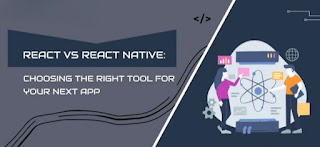The Future of Generative AI in Business: How It Will Change Everything
Once confined to research labs and academic papers, generative AI has now emerged as a driving force behind business innovation and digital growth. From automating content workflows to transforming product development and enhancing customer interactions, this technology is reshaping how modern organizations function and compete.
But what does this transformation mean for businesses of tomorrow? And how can companies fully harness its capabilities?
Here’s a closer look at how generative AI is revolutionizing industries — and why forward-thinking businesses should act now.
Key Areas Where Generative AI Is Making an Impact
1. Smarter Content Creation & Marketing
Generative AI is becoming a cornerstone of modern marketing teams. It's used to:
- Write blog articles
- Generate ad campaigns
- Create videos, imagery, and other creatives
- Customize communication for individual users
These capabilities not only streamline content pipelines but also empower brands to deliver more relevant and engaging messages at scale.
2. Intelligent Customer Support Systems
AI-powered virtual assistants and chatbots are raising the bar for customer service. These tools now:
- Deliver 24/7 customer assistance
- Resolve complex issues quickly
- Continuously learn and adapt to user behavior
More companies are turning to AI application development services to build tailored support solutions that improve both efficiency and user satisfaction.
3. Faster Product Design & Development Cycles
Generative AI is revolutionizing product teams by:
- Creating prototypes with AI-generated code or design files
- Conducting virtual simulations and testing
- Detecting flaws early in the design stage
This accelerates time-to-market and enables businesses to iterate and innovate more rapidly.
4. Advanced Forecasting & Business Intelligence
With its ability to process and interpret massive datasets, generative AI is redefining analytics:
- Produces forward-looking forecasts
- Enhances strategic planning through predictive modeling
- Uncovers insights hidden in complex data patterns
As a result, decision-makers gain better visibility into opportunities and risks alike.
Why Generative AI Is a Strategic Necessity
Viewing generative AI as a short-term trend is a strategic misstep. This technology doesn't just automate — it amplifies human capabilities.
It enables organizations to:
- Boost innovation output
- Launch innovative business models
- React faster to market changes
No matter your company size, adopting generative AI in business is now essential to staying relevant in a fast-evolving landscape.
Challenges Businesses Must Address
Despite the advantages, organizations should approach implementation with care. Key concerns include:
- Data Protection: Safeguarding sensitive information is non-negotiable.
- Ethics and Bias: AI must be deployed with fairness and transparency.
- Resource Demands: Building and scaling generative AI solutions often requires significant infrastructure and expertise.
To succeed, companies must commit to responsible AI governance and adopt clear policies around its use.
The Human-AI Alliance: Future of the Workforce
The workplace of the future isn’t man versus machine — it’s man plus machine.
- Humans offer creativity, empathy, and oversight.
- AI delivers scale, speed, and analytical power.
This partnership will drive a new era of collaborative problem-solving, helping businesses adapt and evolve more effectively.
Final Thoughts
Generative AI is already reshaping the business landscape — not in a decade, but right now.
Whether you're aiming to upgrade customer experiences, streamline product development, or tap into new opportunities, generative AI offers unmatched potential. Organizations that lean into this shift — combining human ingenuity with machine intelligence — will be best positioned to lead in the years ahead.
Embrace the change, or risk being left behind.


.jpg)
Comments
Post a Comment